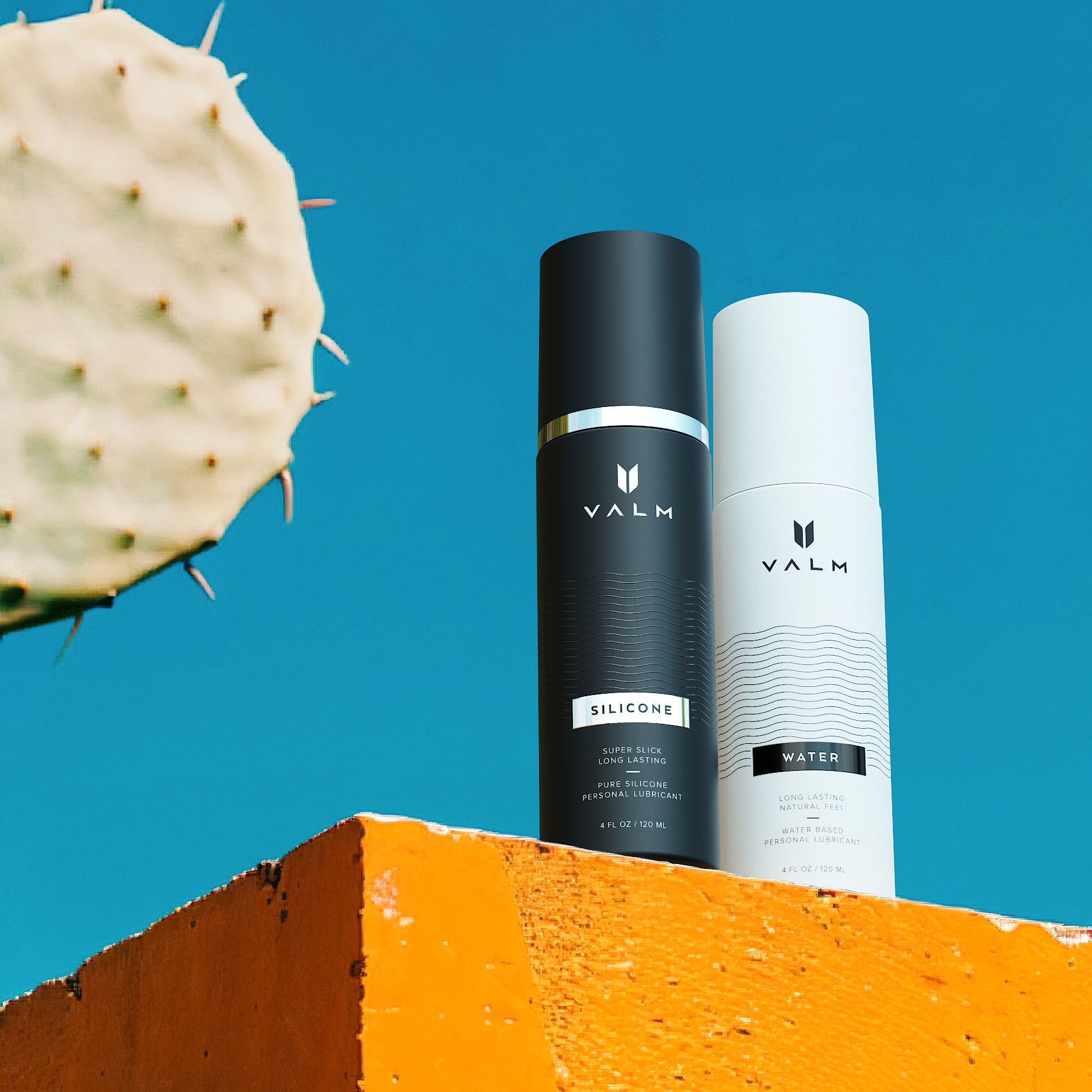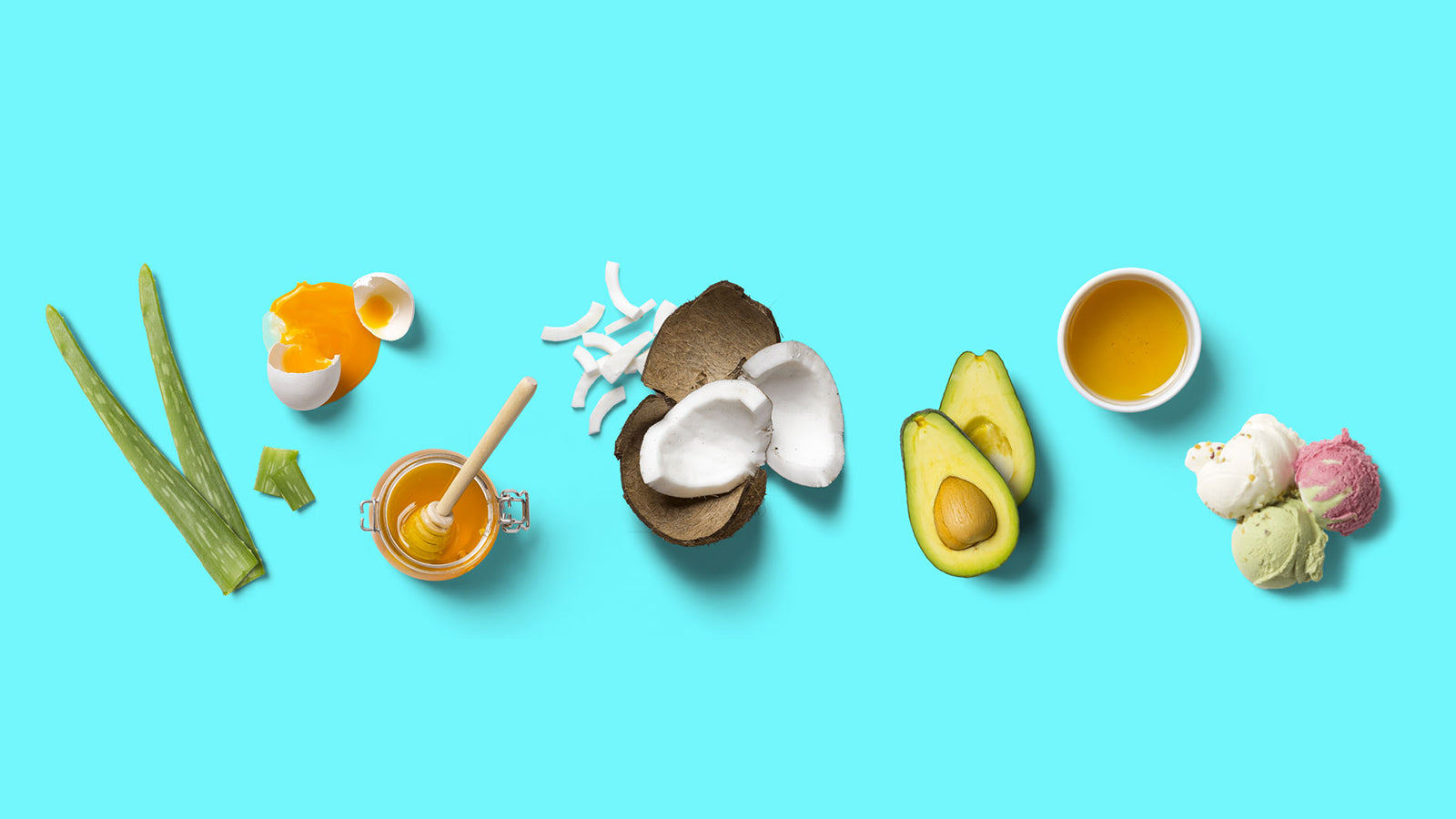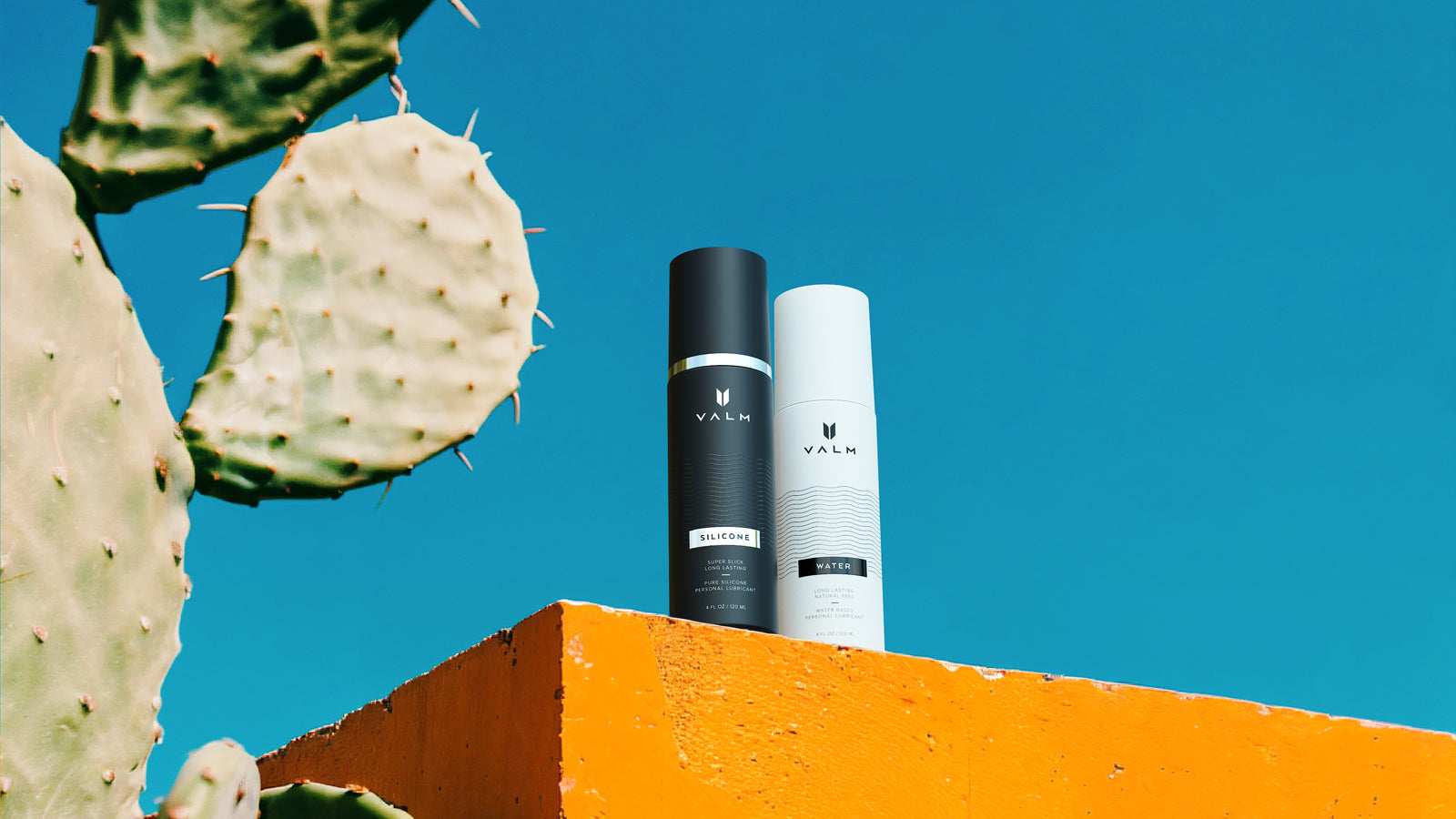While it seems to go without saying that humans have been having sex, well, since forever, we’ve only had the luxury of being able to buy chemically engineered, factory-sealed tubes and containers of lube for a fraction of the time we’ve been at it.
Did people centuries ago simply rough it or did they know about natural items that could enhance the process? The truth is, there are some DIY methods and natural, everyday items that can be used as sex lube.
While they may not be as ideal as many of the products formulated especially for sexual intercourse, they may help out in a pinch if you suddenly discover that you’re all out of your favorite product just at the heat of the moment.
The following are some of the best household items to try as a substitute for lube as well as some items you definitely want to avoid.
Aloe Vera
Natural gel from the aloe vera plant is famous for its soothing properties. Although we’re used to relying on this gel to use on the surface of our skin to soothe and heal a sunburn or relieve an itchy dry patch, this dynamic substance can also work quite well as a sexual lubricant.
In fact, these plants are quite easy to grow in a container. In these cases, you can harvest your own pure aloe gel. However, if you purchase aloe vera from a store, be sure it’s not used in a formulation with alcohol, which is not an ingredient you want to experience in this type of formulation.
And while not all homemade sex lubes can be used safely with a condom, aloe vera can. Natural aloe vera contains no properties that can break down condoms.
Virgin Coconut Oil
Virgin coconut oil is moisture rich and ultra-soothing. Because it’s absorbed well by the skin, it won’t make for a big mess either–at least on your skin. Any coconut oil can, alas, stain your sheets, but if you’ve got the oil and the perfect partner, you can always buy more sheets.
If you do opt for this method, be sure the oil is virgin coconut. Refined coconut oil is more processed and may contain bleach. Also, avoid using virgin coconut oil with condoms as oils tend to cause condoms to break.
Just be aware that some people may be sensitive to these oils, which can cause urinary tract infections. If you wind up with one after using this or another oil, you might want to stick with aloe vera or a commercially produced sex lube instead.
Olive Oil
One of the reasons why olive oil is a popular DIY sex lube is because it’s so readily available. Many of us keep virgin and extra virgin olive oil in our kitchens for use with cooking. Olive oil is actually incredibly healthy and diverse as a natural substance. An olive oil hair treatment can replenish your skin’s moisture. It can soothe dry, cracked feet. And, yes, it can be used safely as a homemade sex lube.
Keep in mind, though, that the oil can clog your pores. It’s a good idea to wash right away after sex if you used olive oil as a lubricant. Like other oils, olive oil should not be used with condoms.
Avocado Oil
The kitchen makes for a great lab to concoct your DIY sex lubes. If you have avocado oil on hand, you don’t need other ingredients. Avocado oil is smooth and tends to be long-lasting, so you may only need to apply it just once.
Be sure you avoid using it with condoms as you would other oil-based products. Oils such as avocado oil are also popular options for use with masturbation. But remember, if you’re using toys, the oil can break down the materials in your sex toys.
Almond Oil
Almond oil is a popular choice as a DIY sexual lubricant. It tastes good, it soothes and moisturizes, and is long-lasting. Typically, couples won’t need to reapply or reapply much to make the most of this home made lube. Almond oil also features a wonderfully sweet fragrance to sweeten your experience. Again, avoid using oils like this with latex condoms.
Shea Butter
Shea Butter is a popular ingredient in moisturizing lotions, but it can also be an effective lubricant on its own. Shea butter features a slick, thick texture and doesn’t require much in the way of reapplication.
Many people have shea butter on hand for use as a skin and hair moisturizer, but if you think you might need to rely on it as a lube, always opt for the organic and natural products, which are sure to be safer for your more delicate private parts.
Ghee
In many South Asian countries, ghee is used instead of similar ingredients like butter. Ghee is gaining popularity in Western kitchens because of its various health properties, which make it a good butter alternative. It’s also an effective sex lubricant.
People enjoy its smell and taste, but while it’s certainly edible, you should wash it off right away after sex. In fact, it’s never a good idea to leave traces of perishables on or near your privates where they may turn rancid and lead to a bacterial infection. Avoid using ghee with condoms, too.
Chinese Yams (Nagaimo)
Chinese yams or nagaimo as they’re called can be used as DIY sex lube. These yams have a slippery–almost slimy sort of texture that makes them very effective at reducing friction during sex. Individuals prone to irritation may find that Chinese yams offer soothing properties.
However, you may want to mix them with an oil like virgin coconut oil to ensure that the lube lasts as long as you and your partner do. If you use the oil with the yams, the mixture could break down the condom, so avoid condom use in that case.
Bonus: Saliva
If you’ve got nothing else at hand and you really need a bit more moisture, you can rely on saliva. However, it’s not long-lasting and won’t be anywhere near as effective as the other items outlined above. Nevertheless, it may be all you need to get things started and heading in a good direction. You can also use spit in association with a condom.
Petroleum Jelly (Vaseline)
It’s true–you will find petroleum jelly on lists of safe DIY lubes. It is effective and has been used for decades as a homemade sex lube. That said, petroleum jelly can increase the risk for bacterial infection in women, and that’s no fun and no way to cap off a great sexual encounter.
Plus, petroleum jelly is more sticky than slick and it leaves a mess. Coupled with the fact that you can’t safely use Vaseline with condoms means you should just reach for the olive oil (even if you pay for the expensive imported stuff) instead.
Baby Oil
Baby oil has a mineral oil base, and that’s not something you want hanging around internally. Yes, it’s moisture-rich and can make your skin feel smooth and silky, but it can also heighten the risk for a vaginosis, a bacterial infection, so it’s not effective as a lube.
Plus, it’s extremely difficult to wash off and isn’t safe for use with condoms. You’ll also want to avoid using any other mineral oils for the same reasons as mentioned here.
Refined Oils
Even if you’re desperate, don’t reach for the vegetable, canola or other refined cooking oils. Save them for frying your chicken! These refined oils go through a lot of processing that includes chemical treatments, heating, and even bleaching. They can leave an icky residue on the body, stain clothing and sheets, and increase the risk for infection. Sorry Crisco, but you’re destined for the frying pan–not the bedroom.
Body Lotions
Some people think that body lotions are a safe option because they’re safe for the skin, they smell great, and they seem to have a nice glide-on feel. But these products can contain any number of ingredients that you don’t want absorbed by the vagina, penis, or anus. Their ingredients or processing could cause irritation and infection. Moreover, if you pay for the good stuff, you’d do better to use something cheaper but more effective like Chinese yams.
Whipped Cream
Who doesn’t love whipped cream? It makes everything taste better, but, alas, it is not a good lubricant and isn’t something that should be introduced to the vaginal area or anus where its sugar content could cause a mightily unpleasant yeast infection. Moreover, it’s not much better than spit in terms of consistency. In order words, it won’t get you far no matter how good it tastes. Use it for your pre or post-sex strawberry shortcake.
Butter
Dairy products and intimate parts don’t really mix well. Butter will stain your clothes, sheets, and is really hard to wash off. You don’t want it sticking to your intimate area where it can turn rancid if not completely cleaned.
Essential Oils
Essential oils can help set the mood. They smell good and feel great on your skin, but many of these oils can irritate the genitals. To be safe, you should not introduce them to your private areas. These oils have not been effectively studied and you could increase your risk for infection by using them as a homemade lube.
Honey
Honey is just asking for a yeast infection if you use it as a sex lube. Honey is ultra sticky and naturally sweet. Yeast will thrive in a moisture-rich setting with sugar to feast on. It’s definitely a DIY sex lube you want to avoid no matter how much you may need it. You can use honey on your skin if you’re into the taste, but don’t introduce it to your intimate areas.
Anything with sugar
Yeast naturally live in the vagina, but when they grow out of control, the result is a yeast infection. Using products with sugar, like whipped cream, in or even on the genitals can increase the risk for pH imbalance and yeast infection. Treating these infections–even with over-the-counter medications–will cost you more than if you just invested in a safe, reliable sex lube or even one of the safe products like aloe vera listed above.
Problems with homemade sex lubes
If you plan to use sex toys, like dildos, or condoms during sex, you’ll want to avoid oil-based sex lubes like olive oil. Stick to water-based lube products instead.
For a more reliable option that's long-lasting, consider using Valm silicone lube. It's specifically designed for sexual use, providing consistent performance compared to DIY alternatives.
If you experience any persistent irritation, itching, unpleasant odors, burning, or pain after using DIY sexual lubricants, you should see your doctor. There’s a good chance that you have an infection. Some yeast infections may clear up on their own, but for many, the irritation is too great.
Moreover, it may not be a yeast infection. You may have developed vaginosis or some other type of infection that requires a prescription medication to clear up. If you have signs of an infection, see your doctor before the symptoms worsen.
Do I need sex lube in my life?
The body does produce its own natural lubricant, of course. But hormones associated with a woman’s cycle can throw lube production off. As women age, they can be prone to increased bouts of vaginal dryness.
Lube production may also sign off for the evening even for couples who aren’t ready to call it quits. Because lube reduces friction, it can mean a more pleasurable—even safer experience. Less friction means less potential for injury to delicate parts that are prone to infection. These days, everybody uses lube because of its many benefits. You may not want to use it for every session, but it’s certainly convenient to have when you need it.
When you’re in a bind and need a sex lube fast because you don’t want to ruin the moment, you can turn to one of the safe DIY sex lubes discussed here. Definitely avoid the unsafe options that many people have relied on only to discover their decided shortcomings. Even so, you may still find that although these safe DIY items are convenient, they simply don’t work as well as commercial sex lubes that are specifically formulated and manufactured for their express use during sex.
These products work amazingly well because they’re designed to. They’re tested and tested and finally sold at market. So, do yourself and your partner a favor by leaving your olive oil in the pantry and keeping plenty of good-quality commercial lube from Valm on hand. Valm features a wide range of lubricants, many of which are safe for use with condoms and toys.




